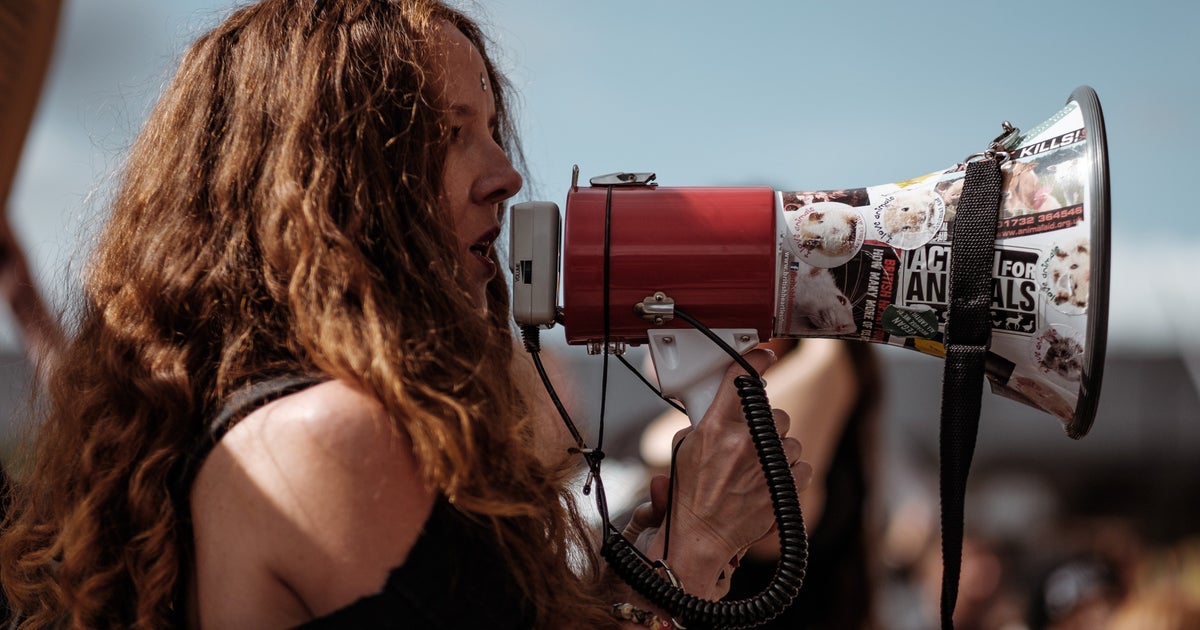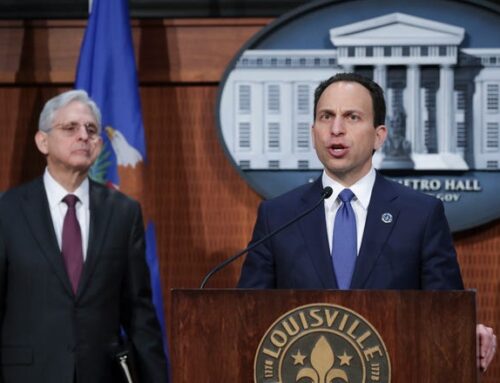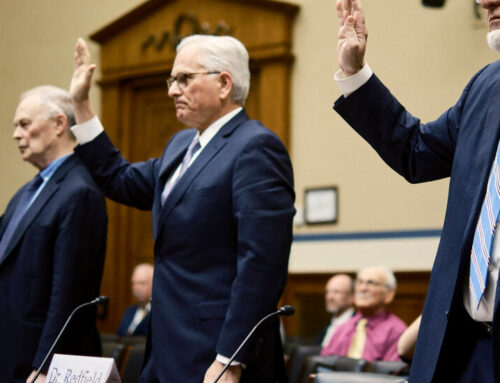
The opinions expressed in this article are the writer’s own and do not reflect the views of Her Campus.
When considering the concept of activism, I believe it is something that only works when activists have a platform for their voice. Therefore, it was such a powerful moment when Lizzo, at the People’s Choice awards back in December 2022, accepted her ‘People’s Champion’ award by bringing out 17 female activists to celebrate them, their voices, and their work.
Lizzo wanted to use her platform to ‘amplify marginalised voices’, admitting that she didn’t believe she deserved a trophy for championing people. Instead, she believes, ‘these are all activists and people that deserve this spotlight’, before shouting ‘I’m gonna say all of their names!’:
- Amariyanna “Mari” Copeny– ‘better known as Little Miss Flint, she spent the past eight years fighting to ensure everyone in Flint and in communities across the nation has access to safe drinking water, she’s only 15 years old.’
Following the Flint water crisis of 2014 (in which the city’s drinking water was contaminated with lead and potentially deadly bacteria), Mari sent a letter to President Obama that prompted him to visit the city and ultimately approve $100 million dollars in relief. She made a significant impact on the dialogue around environmental racism, due to Flint being a predominantly Black area, and has since continued her activism through many projects such as:
- Raising over $600,000 for her Flint Kids projects that includes giving out school supplies and Christmas presents to children in the area.
- Becoming a national youth ambassador to the Woman’s March.
- Partnering with company Hydroviv to produce her own water filter that can be shipped all over the country to help those with toxic drinking water.
- Shirley Raines– ‘through her organisation Beauty 2 the Streetz, she makes the human connection with the unhoused people of Los Angeles, and makes them feel loved, and love what they see in the mirror.’
Beauty 2 the Streetz services Skid Row, Los Angeles (a neighbourhood containing roughly 9,200-15,000 homeless people, one of the largest populations in the US) by providing not only hot food but, makeup, showers, hair washes, colour, and wigs for homeless people. Shirley documents her work to her over 100k Twitter followers to bring awareness to the epidemic of homelessness, but most importantly to demonstrate the valuable human connection that can be made with everyone regardless of circumstance as, after all, Shirley reminds us that ‘the people of Skid Row are just like everyone else, they are people who have fallen on hard times who didn’t have that lifeline to pull them out’.
- Yasmine Aker– ‘she’s an Iranian-American grassroots activist, she is a voice for the voiceless and works with various organisations supporting the Iranian women, and people’s fight for freedom and democracy.’
Yasmine is an actress and alongside her activism for the Iranian people she has also spoke openly about her struggles with poverty, homelessness, childhood trauma and sexual assault and about struggling to find her ‘value’ as a result of this. She writes on her Instagram: “I need to find a way to be able to say that I am proud of who I am. I don’t want to have any more shame left to hide. I am a bisexual woman from the Middle East, and was born without a citizenship, but I am not unwanted. I am not landless. I am a citizen of this world. And I am going to find my worth and unearth my value”.
- Emiliana Guereca– ‘if you’ve been to a woman’s march, she’s probably behind it, as the founder of the Women’s March foundation, she helps amplify our voices.’
Emiliana devotes most of her time to women’s rights advocacy, Latino education and gender equality. She has also worked on the Feminist Street Initiative that endeavours to rename streets across the US (a country in which 5,000 streets are named after George Washington alone) after women who have ‘paved the way and earned their place in history’.
- Esther Young Lim– ‘she’s the author of the booklet How to Report a Hate Crime, and seeks to eradicate barriers and empower the Asian-American and Pacific Islander community.’
Esther is a second-generation Korean American who witnessed ‘blatant Anti-Asian racism’ following the classification of Covid-19 as a pandemic along with microaggressions that ‘made [her] feel uneasy to be in [her] own skin’. She also noticed that the lack of resources in native Asian languages meant that it may be hard for some people of the Asian community to report hate crimes, so she created booklets in 13 languages (originally distributed to her local Los Angeles communities but now available as e-books across the country) that trained her community on how to recognize & report these crimes.
- Felicia “Fe” Montes– ‘she’s a Chicana indigenous artist and activist, co-founder of the groundbreaking women’s collective Mujeres de Maiz. She has created a safe platform for indigenous women of colour to express themselves.’
Mujeres de Maiz works with artists, performers, educators and organizers to create community spaces with the overall goal of bringing together and empowering diverse women and girls and promoting the importance and value of multicultural communities in society.
- Jayla Rose Sullivan– ‘a professionally trained dancer who is making sure there is space for transgender and non-binary performers in the dance community, watch out for that big girl!’
Jayla is a trans woman who competed on Lizzo’s Emmy-winning reality competition series Lizzo’s Watch Out For the Big Grrrls and advocates for more inclusivity in performing and dance- fields that are typically very body-image focused.
- Kara Roselle Smith– ‘a member of the Chappaquiddick Wampanoag Tribe, she works tirelessly to seek justice for Black and indigenous communities and is fighting for Land Back and reparations.’
Land Back is an organisation that aims to return ‘Indigenous Lands back into Indigenous Hands’. For example, places like Mount Rushmore, carved with the faces of four US presidents that is therefore ‘an international symbol of white supremacy and colonization’, is actually located in the heart of the Black Hills, a sacred place for Indigenous people.
- Maggie Mireles– ‘her sister Eva Mireles was a teacher and a hero who lost her life protecting her students during the school shooting in Uvalde, Texas. Maggie is continuing her fight against senseless and despicable gun violence that has become far too common.’
In a year where America had a record high 300 shootings on school grounds with over 6000 children killed by gun violence, the Ulvade school shooting on the 24th May 2022 killed 19 children and 2 adults, one of them Eva Mireles. Her sister Maggie Mireles has been campaigning since, for example by giving a talk at the March For Our Lives rally, to end gun violence in America.
- Amelia Bonow– ‘co-founder of Shout Your Abortion, who is working to normalise abortion and increase awareness of abortion pills and motivate people to work and support abortion access in their communities.’
Following the U.S. Congress’s 2015 efforts to defund Planned Parenthood, Amelia shared her unapologetic personal abortion story that led to a viral outpouring of other stories on social media via the hashtag #ShoutYourAbortion. This hashtag was first developed into an organisation and then into a book of the same name made up of other people’s stories that aimed to present abortion in a more positive light. These were types of conversations that have never happened before on this scale and, according to the SYA website, following the overturning of Roe vs Wade are now ‘needed more urgently than ever before’.
- Odilia Romero– ‘an advocate and translator for the Indigenous peoples from Mexico and Central America who are now living in the United States. Her women led organisation CIELO brings daily relief to her community in Los Angeles.’
Odilia is the co-founder/ executive director of Comunidades Indigenas en Liderazgo (CIELO) and has over 10 years’ experience in organising and helping Indigenous migrant communities. Her work and knowledge have led to multiple academic publications, awards, and lectures in universities across the United States.
- Rabbi Tarlan Rabizadeh– ‘she is committed to building a bridge between Jewish people of all colours and backgrounds, and as an Iranian-American she is fighting to amplify to plight of the Iranian people.’
Rabbi Tarlan Rabizadeh is the director of student life at The University of California, Los Angeles and is the Vice President of Jewish Engagement who aims to ‘engage and educate a diverse group of students on a Jewish journey’.
- Sahar Pirzada– ‘who is working on behalf of Muslim women here in America to advance reproductive justice and protect the community from gendered violence and oppressive systems.’
Sahar passionately believes that Islam is a sex positive religion that supports healthy sexual relationships and therefore works with Heart To Grow where she ‘explores the intersections of homophobia and gender based violence and supports survivors of sexual assault in the Muslim community’.
- Chandi Moore– ‘who works as a community health educator at Children’s Health Hospital in Los Angeles, giving trans and gender non-conforming youth the tools they need to live their lives as their authentic selves.’
Chandi is a HIV and trans rights activist who works at Children’s Hospital Los Angeles Center for Trans Youth and Development with years of counselling experience. She also advocates for those in her community to get tested for HIV and to know their status.
- Crystal Echo Hawk– ‘a member of the Pawnee nation of Oklahoma who seeks to amplify native voices through her organisation IllumiNative. She disrupts the invisibility of Native peoples here in America.’
Crystal founded IllumiNative, an organisation that investigates public opinion research on Native Americans. This data concluded ‘that pop culture, media and K-12 education drive and perpetuate the negative stereotypes and myths and has led to the erasure of Native peoples’. Therefore, theirmission is to tackle this erasure by amplifying Native voices through re-education in America which should ‘mobilise support for key native issues’.
- Reshma Saujani– ‘who is advocating for the moms as a founder of the Marshall Plan for Moms, she fights for paid family leave, affordable childcare and equal pay for all.’
Marshall Plan for Moms aims to support all moms by creating ‘sweeping cultural change to value women’s unseen and unpaid work and rebuild our broken system to make it possible for women to work and have kids’.
- Tamika Palmer– ‘she fights in honour of the memory of her daughter Breonna Taylor- say her name! – who was killed in an act of police violence. The Breonna Taylor Foundation has and will continue to focus on pursuing justice for Breonna.’
On the 13th March 2020, Breonna Taylor, who was an award-winning EMT and first responder in Louisville Kentucky working on the front lines of the pandemic, was killed by police who shot 20 rounds at her house, shooting her 8 times while she slept- despite the person they were actually looking for already being held in police custody. The Breonna Taylor Foundation therefore continues to fight for justice for Breonna from the Louisville Metro Police who have not taken any accountability for her murder.
Lizzo concluded her speech with the powerful instruction ‘Give them their flowers!’, urging everyone to ‘follow and support’ these women, as well as reminding us all that any platform, big or small, can be used as an opportunity to support and amplify other valuable voices.
See the full speech here:


